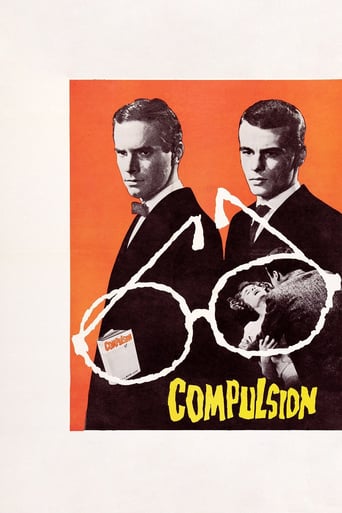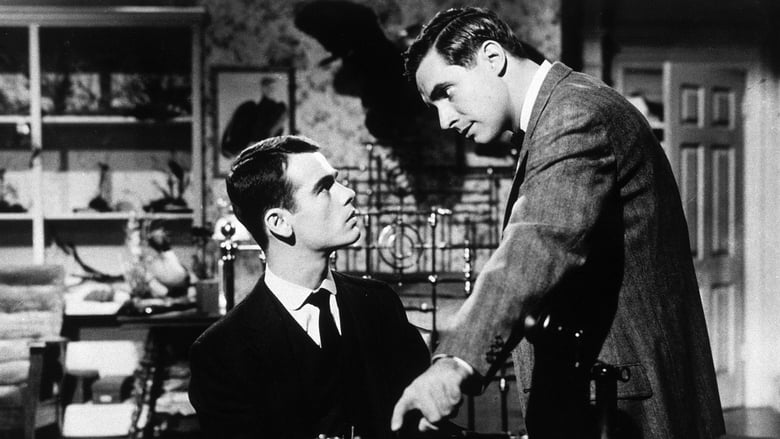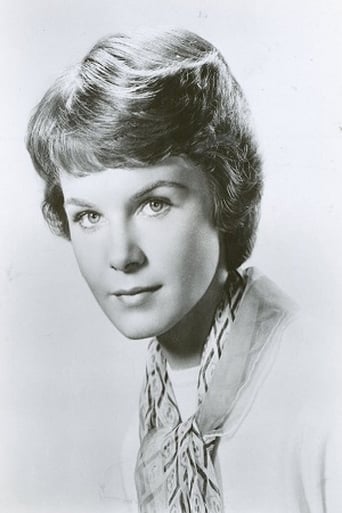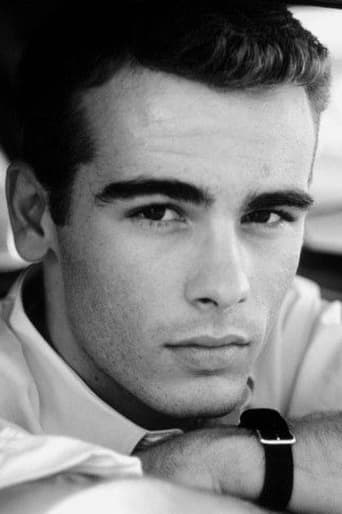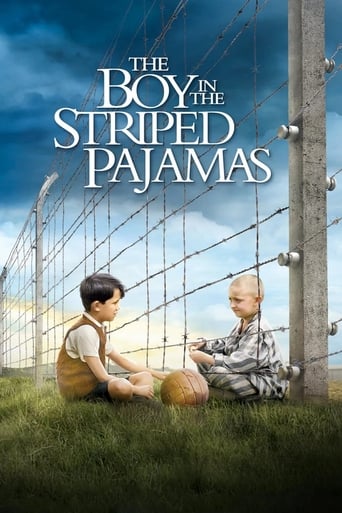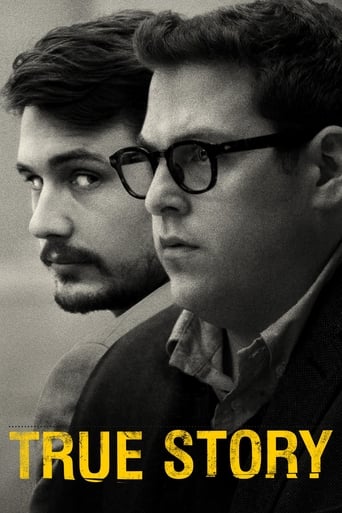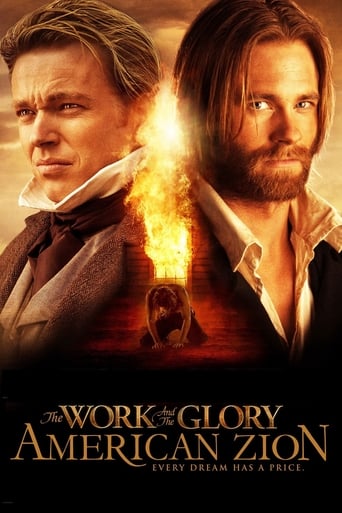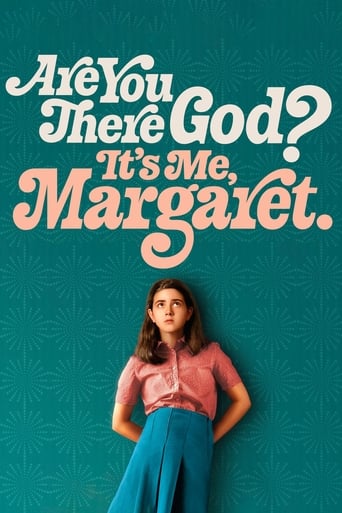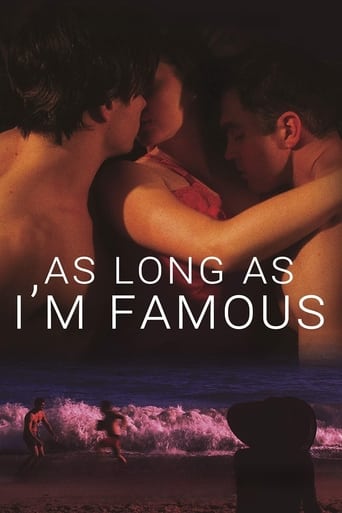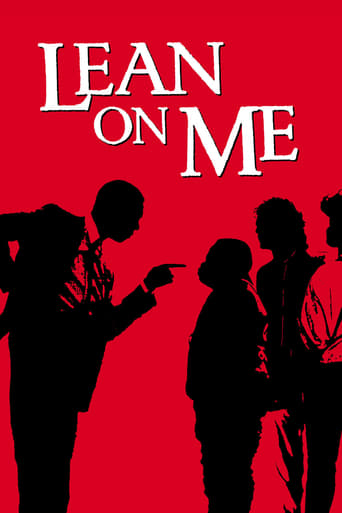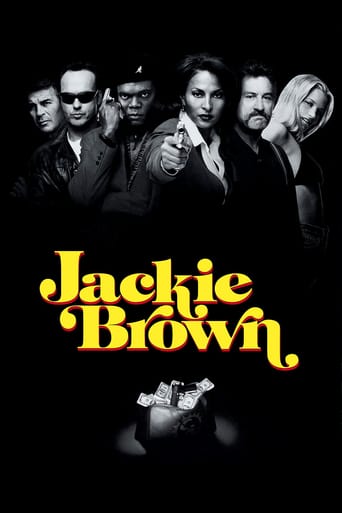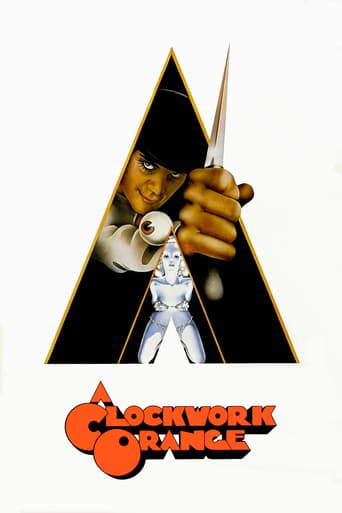Compulsion (1959)
Two close friends kidnap and murder a young boy and are defended in court by a renowned attorney who makes an impassioned plea against capital punishment.
Watch Trailer
Free Trial Channels
Cast


Similar titles
Reviews
Too much of everything
Overrated
One of the most extraordinary films you will see this year. Take that as you want.
One of the best movies of the year! Incredible from the beginning to the end.
I don't know why I'm so attracted to this vulnerable weirdos. From Anthony Perkins as Norman Bates in Psycho to Colin Firth as Adrian Leduc in Apartment Zero, darkness and a fragility that is part of the unbearable suspense. Maybe I'm in need of professional attention but I don't think so. What attracts me is by the undeniable innocence behind the horror and that has a lot, if not everything, to do with the actors playing them. Look at Anthony Perkins in Psycho! 57 years ago and it still looks and feels kind of revolutionary or Colin Firth in Apartment Zero, the character is so unique and real that you can see it a thousand times and always find some new extra something, then Dean Stockwell in Compulsion. He plays a monster, a sick, pathetic prince of a man. Yes all of that. The humanity of the actor makes the monster human and we can't dismiss him, he doesn't allow us. Orson Welles has a great entrance into the film and E.G Marshall is superb as per usual, it is the rest of the cast who seem a bit dated, specially when sharing the frame with the extraordinary Dean Stockwell
Even now, some ninety-plus years after the event there is, it would seem, still some mileage left in the infamous Leopold/Loeb case that has already spawned at least two novels, a stage play and several movies. The facts can be stated in a brief sentence; two wealthy Chicagoans, late teens, Jewish, gay, highly intelligent and disciples of German nihilist philosopher Frederich Nietchze, planned and carried out the cold-blooded murder of a young boy in order to see how it 'felt' to kill. They were caught, stood trial, and were defended by Clarence Darrow, a lawyer who never prosecuted a case but always appeared for the defense. Darrow pleaded the case before a single judge rather than a 12-man jury and by so doing was able to avoid the death penalty and secure life sentences for both defendants. All hands turn in solid work from Dean Stockwell and Bradford Dillman as the sociopaths, E.G. Marshall as the State prosecutor and above all Orson Welles who dominates the last hour as Jonathan Wilk, a lightly fictionalised Clarence Darrow. Richard Fleisher wisely shot in black and white which adds atmosphere. Still more than watchable.
Deserved the acting awards for the three male actors that the Cannes festival bestowed. Orson Welles is amazing while delivering his lines--almost whispering and yet being heard. His performance makes Marlon Brando's famous roles look artificial and contrived. I liked the visual play of the director with the spectacles several times in the film, each time in a different manner. Director Fleischer who impressed me with his film "Barabbas" continues to impress me here. Probably, in this film it was the final line of theism versus atheism. Finally. this is an important example of a film that argues against the death penalty.
No need to recap the plot.From what I've read, it looks like the screenplay sticks pretty closely to the real facts of the investigation. There's the eyeglasses tip-off, the phony alibi with the two girls, the car they couldn't have used, et al. At first, I thought these were just Perry Mason- type script gimmicks, but they're not. For a couple of super intellects, Steiner and Straus (Loeb & Leopold) committed one heckuva clumsy murder.Perhaps the movie's most interesting feature is how the 1959 production flirts with some of the more forbidden aspects of the real life Loeb and Leopold. In '59 the notorious Hollywood Production Code was losing its grip on the studios. Perhaps the most vivid example is that year's Anatomy of a Murder. There such otherwise taboo words as 'panties' and 'sperm' made their first screen appearance, shocking some audiences, but adding a new adult level to the screen. Then too, shouldn't forget Hitchcock's Psycho, also produced in '59, and the first appearance of, oh my gosh, a real live toilet.Whatever the envelope-pushing in some parts of Hollywood, there's little of it here, and that hesitation works to the movie's detriment. Just what is the nature of the unusual bond between these two privileged, self-appointed supermen. At times, the script hints at something more than just shared Nietschean hubris, but dares not get more explicit about Leopold and Loeb's real life homosexual attachment. Note how the script plays around with a black book full of girls' names in Straus's (Dillman) case and whether Steiner (Stockwell) knows any girls at all. Now, as others have pointed out, this appears a crime that neither would have committed without the other. In short, their attachment and at times co-dependency is rooted in more than just shared intellect. It's also a kind of 'insane love' or what the French call 'amour fou'. This time rooted in a homosexual context. Had the screenplay dealt honestly with this key aspect of the case, their motivations would have been much clearer than what we're presented with.That aspect also sheds light on one of the film's most dramatic scenes. It's the one where a confused Straus begins an assault on the sympathetic Ruth (Varsi), but can't go through with the act. Now, one would suppose that it's not moral compunction that holds him back. After all, he and Steiner believe themselves above common morality. However, if we interpret Straus's confusion as sexual in nature, then his inability to complete the act becomes clearer. As things stand, his withdrawal back into himself comes across as muddled innuendo that we're left to figure out. To me, turning this key element into scattered hints instead of dealing candidly with their homosexuality, not only reflects taboos of the time but muddies the film as a whole.The movie itself is certainly well acted. For a production that depends more on talk than action, this is a key factor. The one concession in the casting department, it appears, is Milner and Varsi as the attractive youngsters, a move I suspect that was made for commercial reasons since there's no counterpart in the real case itself, that is, from what I've read. I'm glad Welles low-keys it as the defense attorney, who in real life was the notable Clarence Darrow. Had Welles blustered, his lengthy courtroom appeal would have been hard to endure. According to one account I read, Loeb and Leopold were very unimpressed with Darrow on first meeting, what with his disheveled appearance, he looked anything but the ace attorney he was. Later, of course, they came to appreciate his skills. As Darrow, Welles, of course, repeats this sloppy appearance.My one complaint is with a typical Hollywood pander. Now, for better or worse, Darrow was an outspoken atheist. But commercial Hollywood couldn't leave him at that, turning him in the movie's final moments into a fence-sitting agnostic instead. I guess they figured that would go down better with the audience. Also, it was not actually Darrow who said that dropping the incriminating eyeglasses could have been the work of God. It was the prosecuting attorney. But then, old Hollywood was never big on historical fact.My sense is that despite the powerhouse cast, the movie has drifted into semi-obscurity mainly as a reflection of its time. Were it made again today, now that the lid is off, who knows what the results might be.

